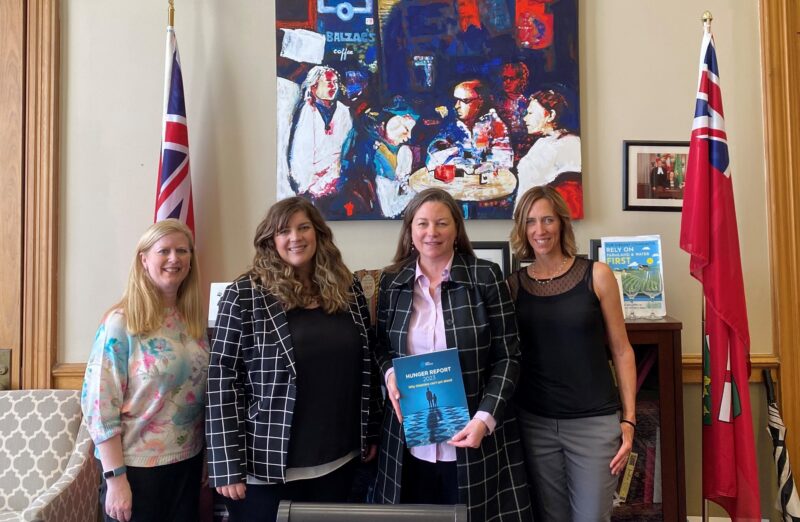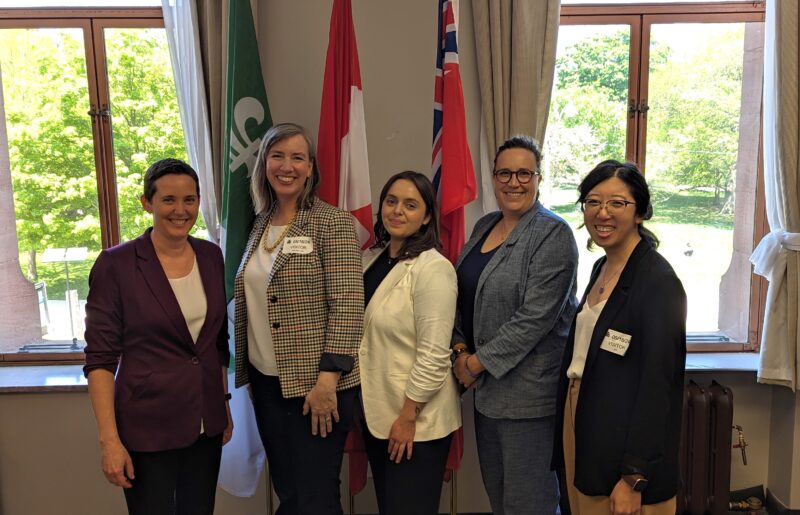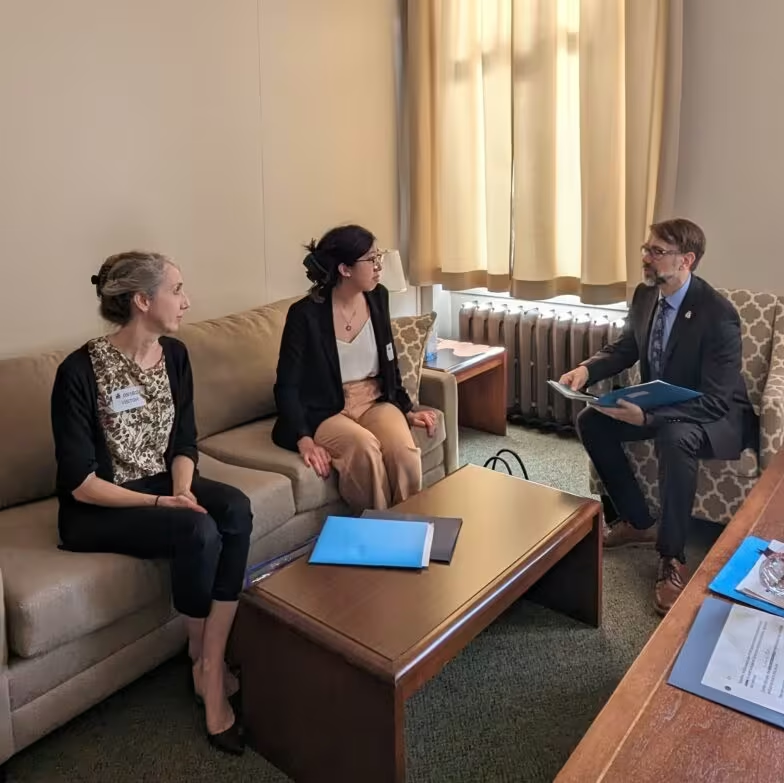Feed Ontario held a Day of Action last week at Queen’s Park. Our focus was on advocating for changes to social assistance in Ontario, for example improving Ontario Works (OW), as well as building relationships between local food banks and their MPPs. Our goal was to bring awareness to what is happening on the ground in community food banks across the province, and sharing evidence-based policy recommendations.
Feed Ontario, together with 17 dedicated individuals representing food banks across the province, held 18 meetings with MPPs from all parties and representing 19 ridings across Ontario.

Why do we advocate for change?
With 1 in 19 Ontarians now relying on food banks to put food on their table, food banks across Ontario are on the brink of collapse. The 2023 Hunger Report revealed a 38 per cent increase in food bank visitors from the year prior, with more than 800,000 Ontarians relying on a food bank last year.
While there are many factors as to why Ontarians are falling behind, inadequate social assistance in Ontario continues to be a longstanding driver of food bank use.
What is OW?
OW is a program that assists working-age adults in financial need with money for living expenses, health benefits, and employment supports. It is one of the two main social assistance programs in Ontario, alongside the Ontario Disability Support Program (ODSP). OW provides very little financial support and program rules make it difficult to escape poverty. As a result, many OW recipients must turn to a food bank. Last year, 1 in 4 food bank visitors relied on OW as their primary source of income.
What should be done?
During our conversations with MPPs, three evidence-based recommendations were discussed that can immediately improve OW to better support those who rely on the program and alleviate the pressure that food banks are facing.
1. Reduce the clawbacks on the money people earn.
When those relying on OW earn income from working, the money they receive from OW is clawed back at a rate of 50 cents per dollar after the first $200 per month earned, which can act as a barrier to work.
The Government of Ontario recently changed how earned income clawbacks work for ODSP recipients so the first $1,000 in earnings per month is exempt, with a 75 per cent clawback after that. We recommend applying this change to OW so recipients who are working can keep more of their money.
2. Account for the rising cost of living in social assistance rates.
The financial assistance provided by OW is intended to help recipients stabilize their lives as they seek employment or access other supports, but the rates have not kept pace with the cost of living. A single person on OW only receives $733 per month to cover shelter and their basic needs. Since 2018, rent has gone up by 32 per cent and the cost of food has gone up by 43 per cent, but the financial assistance provided by OW has not increased at all. This makes it very challenging for recipients to actually achieve the goals of the program, and they must focus on merely keeping a roof over their head and food on the table rather than on skills training or searching for work.
We appreciate that the Government of Ontario has committed to ODSP inflationary increases, and we recommend that as a first step towards reducing poverty, OW rates increase to $881, where they would be if accounting for inflation since 2018.
3. Implement automatic tax filing for Ontario Works recipients.
Many benefits provided by the government, such as the Ontario Trillium Benefit, are delivered through the tax system and require individuals to file their income taxes to receive them. Unfortunately, one third of single OW recipients do not file taxes and miss out on an average of $1,000 in benefits they are entitled to receive. This happens for many reasons, including belief that they don’t have enough income to receive a tax refund, a lack of understanding of the rules, or worries that tax refunds would be clawed back from social assistance. Implementing automatic tax filing for OW recipients would allow more people to access these supports.

Attending Feed Ontario’s Day of Action at Queen’s Park was incredibly valuable. It allowed us to advocate for crucial changes to social assistance programs and highlight the growing need for affordable housing. We’re grateful for the opportunity to join forces with others and push for policies that can help reduce food insecurity in our communities. Thank you to Feed Ontario for organizing this impactful event.
Alex Noreau, Ottawa Food Bank
Feed Ontario’s Day of Action at Queen’s Park was important for highlighting the gaps in our social assistance programs. With 43% of food bank visitors relying on these programs as their main source of income, it’s clear that current support is insufficient. By coming together, we amplified our collective voice and underscored the importance of ensuring that food banks remain emergency services rather than long-term solutions.
We can’t let hunger be the new normal in Ontario. Learn more about Feed Ontario’s policy recommendations and email your MPP to call for change today.

